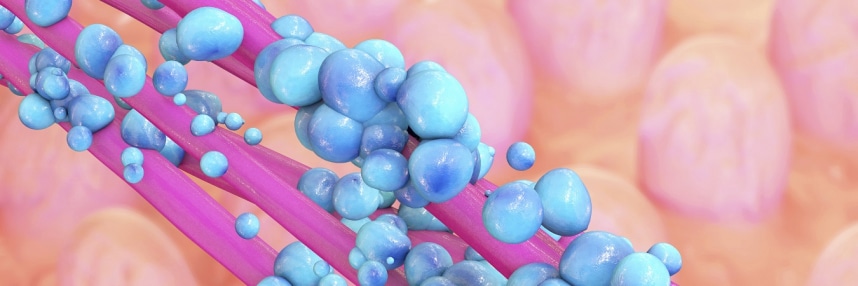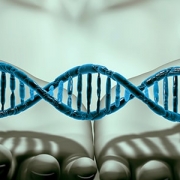Colibactin and colorectal cancer
A newly published study could mark a major milestone in understanding the microbiome and the role in can play in disease development
An association between a toxin found in a common strain of gut bacteria and genetic changes that cause bowel cancer has been described in Nature.
Although the gut microbiome has previously been implicated in the disease, this study is the first to demonstrate a clear relationship between a specific type of gut bacteria and the development of colorectal cancer.
E coli and colibactin
E coli is part of a healthy gut microbiome, but the journal article outlines that around 20% of people are thought to carry strains containing a region of DNA called pks which produce a toxin called colibactin, in addition to more common varieties.
Colorectal cancer (CRC) is the UK’s fourth most common cancer: over 42,000 new cases are diagnosed each year. Of these, around 5% may be attributable to colibactin according to this new research; a significant number, albeit small when compared to the estimated 50% which could be prevented by lifestyle changes including improved diet, avoiding alcohol and smoking and maintaining a healthy weight.
Some other types of cancer are already known to be associated with bacterial and viral infections, such as HPV with cervical cancer and H. pylori with stomach cancer.
A role in DNA damage
Colibactin’s association with bowel cancer was suspected, as pks-carrying strains of bacteria are found in around 20% of healthy people, but are more common in stool samples from patients with inflammatory bowel diseases and colorectal cancer.
In the first stage of the research, colibactin-producing E coli were injected into lab-grown organoids – miniature structures made of human gut cells. After five months the genomes of cells from these organoids, as well as from organoids injected with pks-negative E coli, were sequenced.
The colibactin-exposed cells had twice the rate of DNA damage compared to the other group, including some types of mutation which were not observed in control organoids.
Mutational signatures
There are many ways that DNA can be damaged, and the damage itself can take different forms. In some cases, characteristic combinations of DNA changes can act like a fingerprint, allowing identification of the agent that caused the changes. This is known as a mutational signature.
Many known processes such as exposure to UV radiation or tobacco, or defective DNA repair mechanisms, leave these characteristic signatures.
From the colibactin-exposed organoids the researchers were able to identify two specific mutation types: a small indel signature which they call ID-pks and a single base substitution signature they refer to as SBS-pks. These were not found in cells that were not exposed to colibactin.
The value of whole genome sequencing
Whole genome sequencing of tumours allows mutational signatures to be identified, and can shed light on how some cancers are caused.
The researchers compared these findings with whole genome data from over 3,500 metastatic tumour samples of which nearly 500 were from colorectal primary tumours. The two signatures identified in the organoid experiment were present much more often in the genomes of CRC-derived tumours as opposed to all other types.
The researchers also looked at over 2,200 CRC genomes from the 100,000 Genomes Project. They found that 5% carried the SBS-pks signature and 4.4% carried the ID-pks mutations. 2% of the samples were high in both types of mutation.
The findings illustrate the complex relationship between the body’s genome and microbiome, and how understanding these interactions can increase understanding of heath and disease. Research in the area is vibrant, and the wider availability of whole genome sequencing is sure to mean rapid progress.
–









